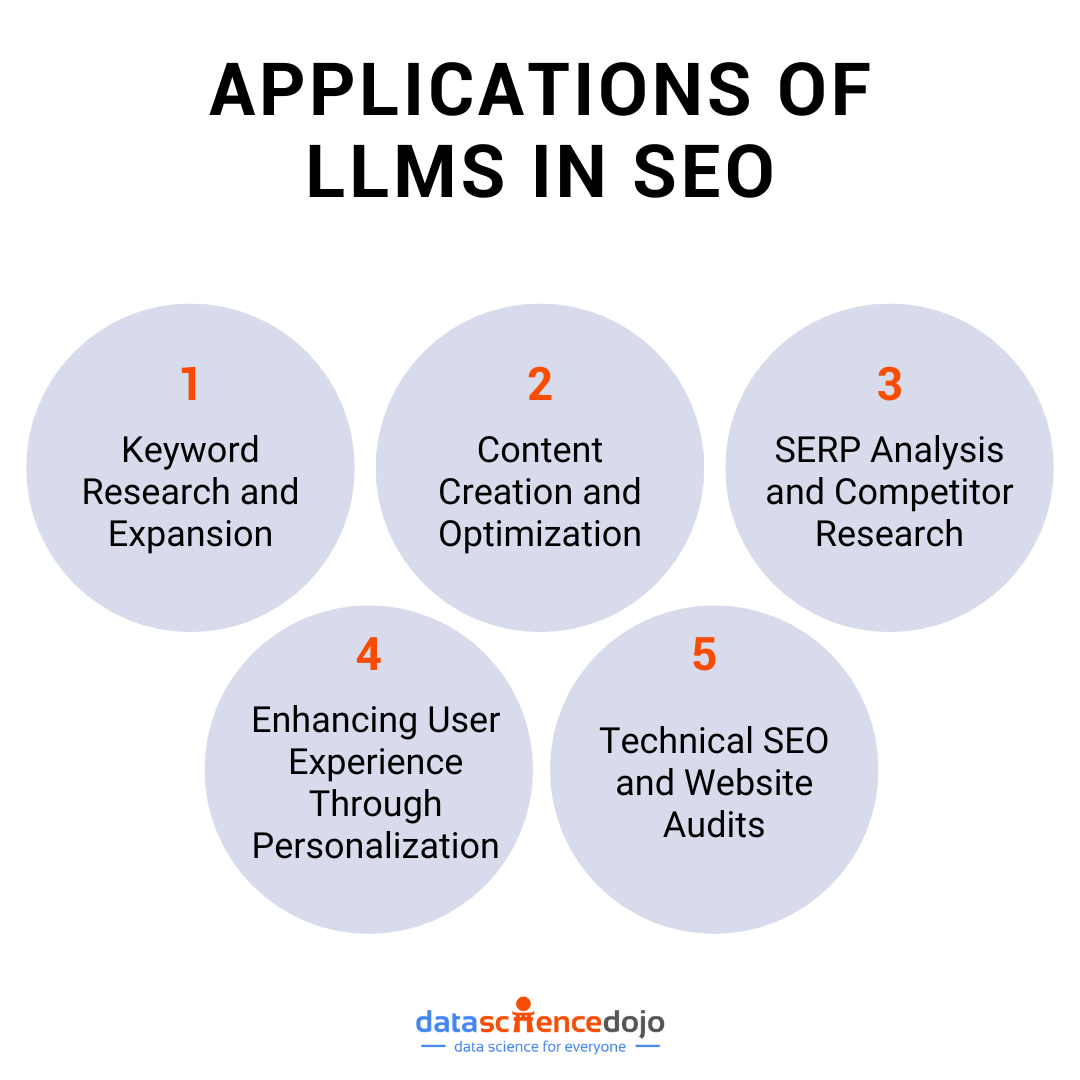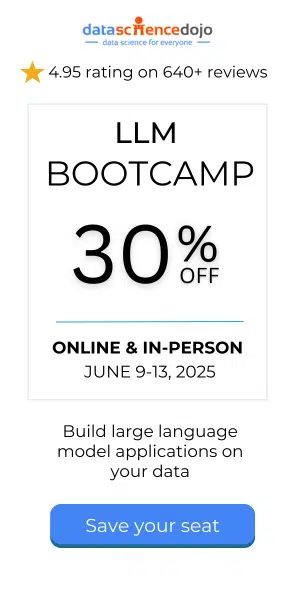Search engine optimization (SEO) is an essential aspect of modern-day digital content. With the increased use of AI tools, content generation has become easily accessible to everyone.
Hence, businesses have to strive hard and go the extra mile to stand out on digital platforms.
Since content is a crucial element for all platforms, adopting proper search engine optimization practices ensures that you are a prominent choice for your audience.
However, with the advent of large language models (LLMs), the idea of LLM-powered SEO has also taken root.
In this blog, we’ll dive into how AI-driven SEO works, its benefits, challenges, and how it’s transforming the digital world today.
What is LLM-Powered SEO?
LLMs are advanced AI systems trained on vast datasets of text from the internet, books, articles, and other sources. Their ability to grasp semantic contexts and relationships between words makes them powerful tools for various applications, including SEO.
Explore GPT-4 and its step towards artificial general intelligence
LLM-powered SEO uses advanced AI models, such as GPT-4, to enhance SEO strategies. These models leverage natural language processing (NLP) to understand, generate, and optimize content in ways that align with modern search engine algorithms and user intent.
LLMs are revolutionizing the SEO landscape by shifting the focus from traditional keyword-centric strategies to more sophisticated, context-driven approaches. This includes:
- optimizing for semantic relevance
- voice search
- personalized content recommendations
Also learn how to create a voice controlled chatbot
Additionally, LLMs assist in technical optimization tasks such as schema markup and internal linking, enhancing the overall visibility and user experience of websites.
Practical Applications of LLMs in SEO
While we understand the impact of LLMs on SEO, let’s take a deeper look at their applications.
Keyword Research and Expansion
LLMs excel in identifying long-tail keywords, which are often less competitive but highly targeted, offering significant advantages in niche markets.
They can predict and uncover unique keyword opportunities by analyzing search trends, user queries, and relevant topics, ensuring that SEO professionals can target specific phrases that resonate with their audience.
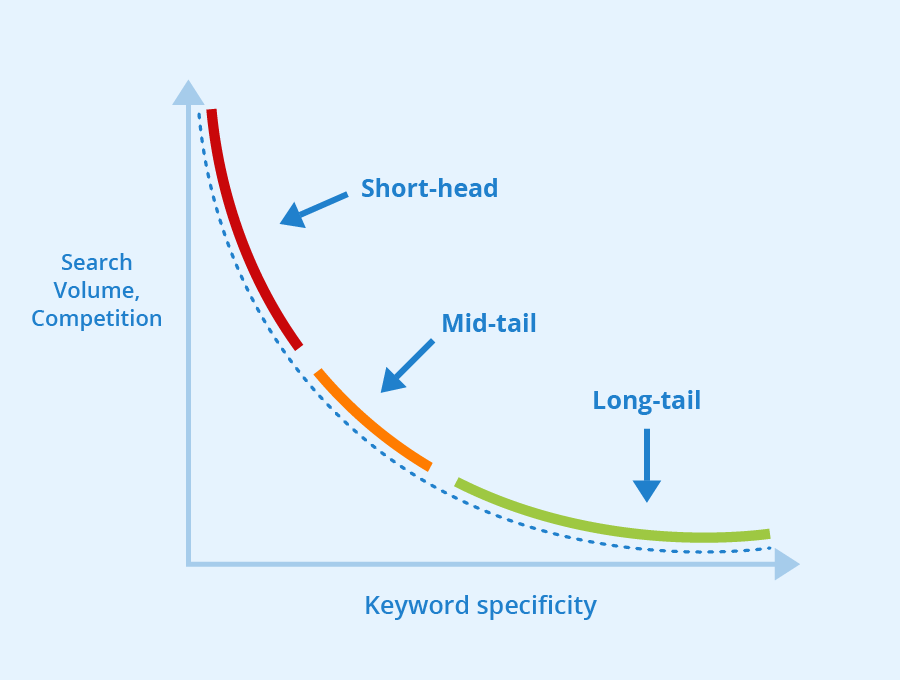
Content Creation and Optimization
LLMs have transformed content creation by generating high-quality, relevant text that aligns perfectly with target keywords while maintaining a natural tone. These models understand the context and nuances of language, producing informative and engaging content.
Furthermore, LLMs can continuously refine and update existing content, identifying areas lacking depth or relevance and suggesting enhancements, thus keeping web pages competitive in search engine rankings.
Also learn how AI is helping content creators
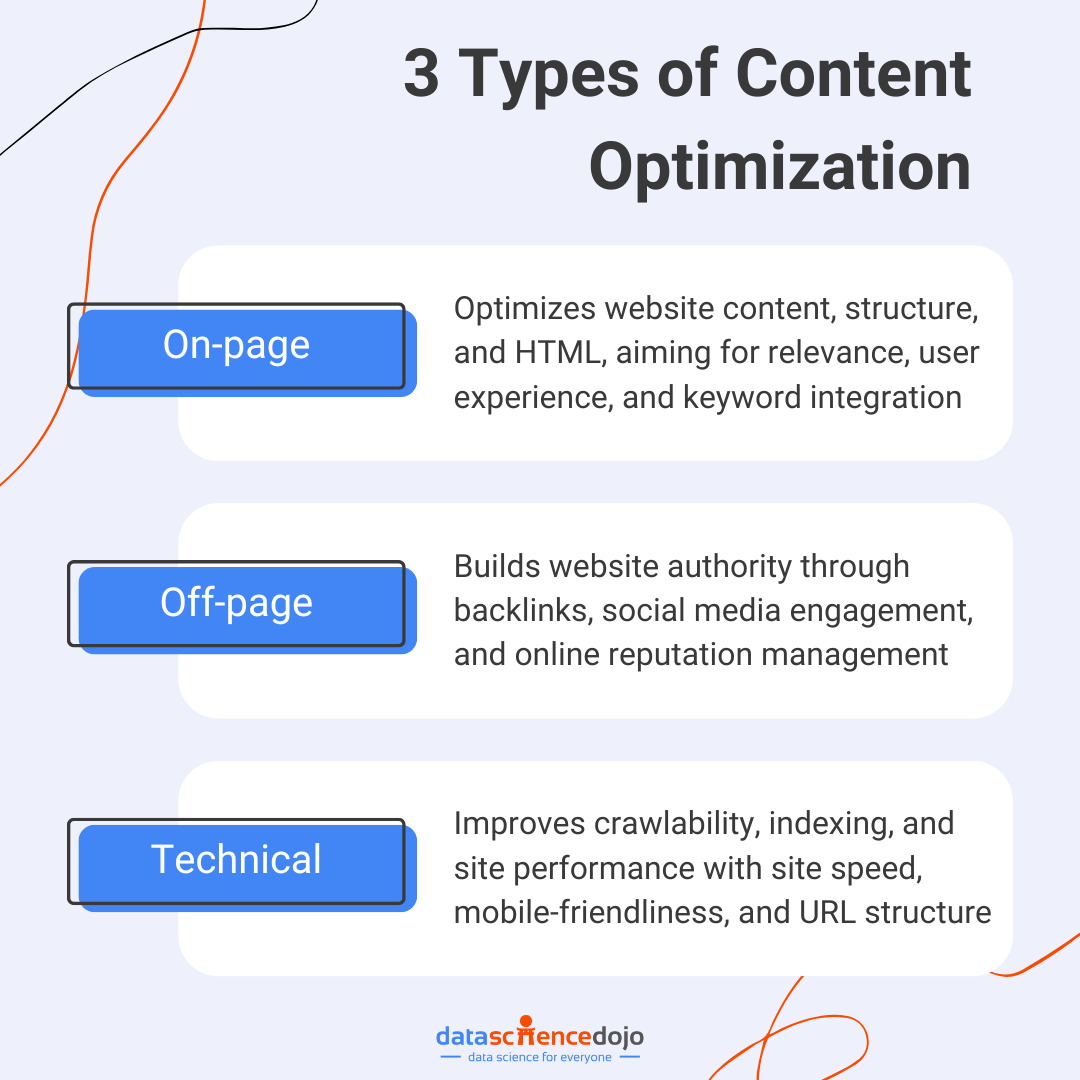
SERP Analysis and Competitor Research
With SERP analysis, LLMs can quickly analyze top-ranking pages for their content structure and effectiveness. This allows SEO professionals to identify gaps and opportunities in their strategies by comparing their performance with competitors.
By leveraging LLMs, SEO experts can craft content strategies that cater to specific niches and audience needs, enhancing the potential for higher search rankings.
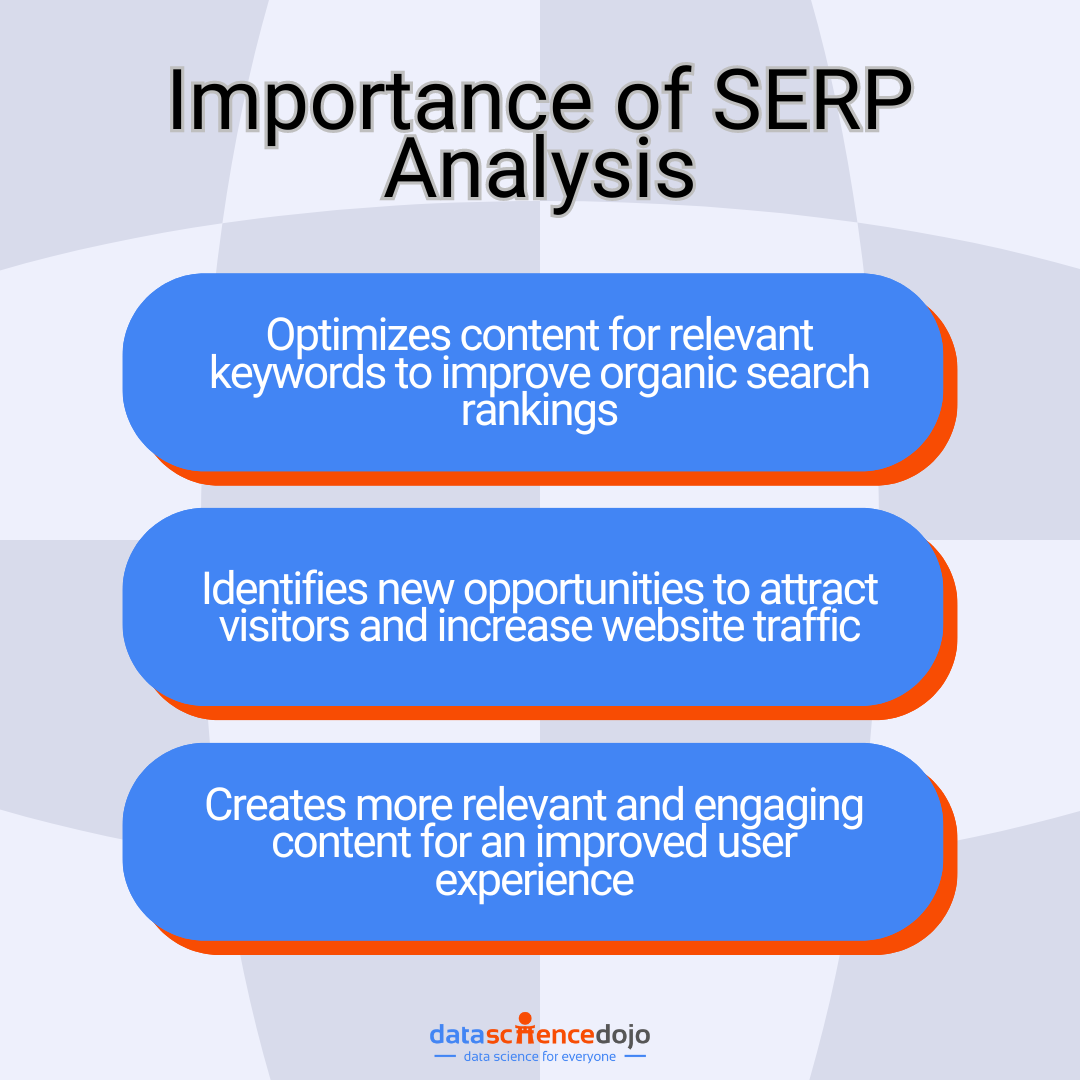
Enhancing User Experience Through Personalization
LLMs significantly improve user experience by personalizing content recommendations based on user behavior and preferences.
By understanding the context and nuances of user queries, LLMs can deliver more accurate and relevant content, which improves engagement and reduces bounce rates.
This personalized approach ensures that users find the information they need more efficiently, enhancing overall satisfaction and retention.
Technical SEO and Website Audits
LLMs play a crucial role in technical SEO by assisting with tasks such as keyword placement, meta descriptions, and structured data markup. These models help optimize content for technical SEO aspects, ensuring better visibility in search engine results pages (SERPs).
Additionally, LLMs can aid in conducting comprehensive website audits, identifying technical issues that may affect search rankings, and providing actionable insights to resolve them.
Read more about 9 top tools for AI-driven personalization in marketing
By incorporating these practical applications, SEO professionals can harness the power of LLMs to elevate their strategies, ensuring content not only ranks well but also resonates with the intended audience.
Challenges and Considerations
However, LLMs do not come into the world of SEO without bringing in their own set of challenges. We must understand these challenges and consider appropriate practices to overcome them.
Here are some key challenges and factors to consider when using LLMs for digital optimization:
Ensuring Content Quality and Accuracy
While LLMs can generate high-quality text, there are instances where the generated content may be nonsensical or poorly written, which can negatively impact SEO efforts.
Search engines may penalize websites that contain low-quality or spammy content. Regularly reviewing and editing AI-generated content is essential to maintain its relevance and reliability.
Ethical Implications of Using AI-Generated Content
There are concerns that LLMs could be used to create misleading or deceptive content, manipulate search engine rankings unfairly, or generate large amounts of automated content that could dilute the quality and diversity of information on the web.
Ensuring transparency and authenticity in AI-generated content is vital to maintaining trust with audiences and complying with ethical standards. Content creators must be mindful of the potential for bias in AI-generated content and take steps to mitigate it.
Dig deeper into understanding AI ethics and its associated ethical dilemmas
Overreliance on LLMs and the Importance of Human Expertise
Overreliance on LLMs can be a pitfall, as these models do not possess true understanding or knowledge. Since the models do not have access to real-time data, the accuracy of generated content cannot be verified.
Therefore, human expertise is indispensable for fact-checking and providing nuanced insights that AI cannot offer. While LLMs can assist in generating initial drafts and optimizing content, the final review and editing should always involve human oversight to ensure accuracy, relevance, and contextual appropriateness.
Adapting to Evolving Search Engine Algorithms
Search engine algorithms are continuously evolving, presenting a challenge for maintaining effective SEO strategies.
LLMs can help in understanding and adapting to these changes by analyzing search trends and user behavior, but SEO professionals must adjust their strategies according to the latest algorithm updates.
This requires a proactive approach to SEO, including regular content updates and technical optimizations to align with new search engine criteria. Staying current with algorithm changes ensures that SEO efforts remain effective and aligned with best practices.
In summary, while LLM-powered SEO offers numerous benefits, it also comes with challenges. Balancing the strengths of LLMs with human expertise and ethical considerations is crucial for successful SEO strategies.
Tips for Choosing the Right LLM
Since LLM is an essential tool for enhancing the SEO for any business, it must be implemented with utmost clarity. Among the many LLM options available in the market today, you must choose the one most suited to your business needs.
Some important tips to select the right LLM for SEO include:
1. Understand Your SEO Goals
Before selecting an LLM, clearly define your SEO objectives. Are you focusing on content creation, keyword optimization, technical SEO improvements, or all of the above? Identifying your primary goals will help you choose an LLM that aligns with your specific needs.
2. Evaluate Content Quality and Relevance
Ensure that the LLM you choose can generate high-quality, relevant content. Look for models that excel in understanding context and producing human-like text that is engaging and informative. The ability of the LLM to generate content that aligns with your target keywords while maintaining a natural tone is crucial.
3. Check for Technical SEO Capabilities
The right LLM should assist in optimizing technical SEO aspects such as keyword placement, meta descriptions, and structured data markup. Make sure the model you select is capable of handling these technical details to improve your site’s visibility on search engine results pages (SERPs).
4. Assess Adaptability to Evolving Algorithms
Search engine algorithms are constantly evolving, so it’s essential to choose an LLM that can adapt to these changes. Look for models that can analyze search trends and user behavior to help you stay ahead of algorithm updates. This adaptability ensures your SEO strategies remain effective over time.
Explore the top 9 ML algorithms to use for SEO and marketing
5. Consider Ethical Implications
Evaluate the ethical considerations of using an LLM. Ensure that the model has mechanisms to mitigate biases and generate content that is transparent and authentic. Ethical use of AI is crucial for maintaining audience trust and complying with ethical standards.
6. Balance AI with Human Expertise
While LLMs can automate many SEO tasks, human oversight is indispensable. Choose an LLM that complements your team’s expertise and allows for human review and editing to ensure accuracy and relevance. The combination of AI efficiency and human insight leads to the best outcomes.
7. Evaluate Cost and Resource Requirements
Training and deploying LLMs can be resource-intensive. Consider the cost and computational resources required for the LLM you choose. Ensure that the investment aligns with your budget and that you have the necessary infrastructure to support the model.
By considering these factors, you can select an LLM that enhances your SEO efforts, improves search rankings, and aligns with your overall digital marketing strategy.
Best Practices for SEO with LLMs
While you understand the basic tips for choosing a suitable LLM, let’s take a look at the best practices you must implement for effective results.
1. Invest in High-Quality, User-Centric Content
Create in-depth, informative content that goes beyond generic descriptions. Focus on highlighting unique features, benefits, and answering common questions at every stage of the buyer’s journey.
High-quality, user-centric content is essential because LLMs are designed to understand and prioritize content that effectively addresses user needs and provides value.
Learn how to leverage AI in SEO for financial success
2. Optimize for Semantic Relevance and Natural Language
Focus on creating content that comprehensively covers a topic using natural language and a conversational tone. LLMs understand the context and meaning behind content, making it essential to focus on topical relevance rather than keyword stuffing.
This approach aligns with how users interact with LLMs, especially for voice search and long-tail queries.
3. Enhance Product Information
Ensure that product information is accurate, comprehensive, and easily digestible by LLMs. Incorporate common questions and phrases related to your products. Enhanced product information signals to LLMs that a product is popular, trustworthy, and relevant to user needs.
4. Build Genuine Authority and E-A-T Signals
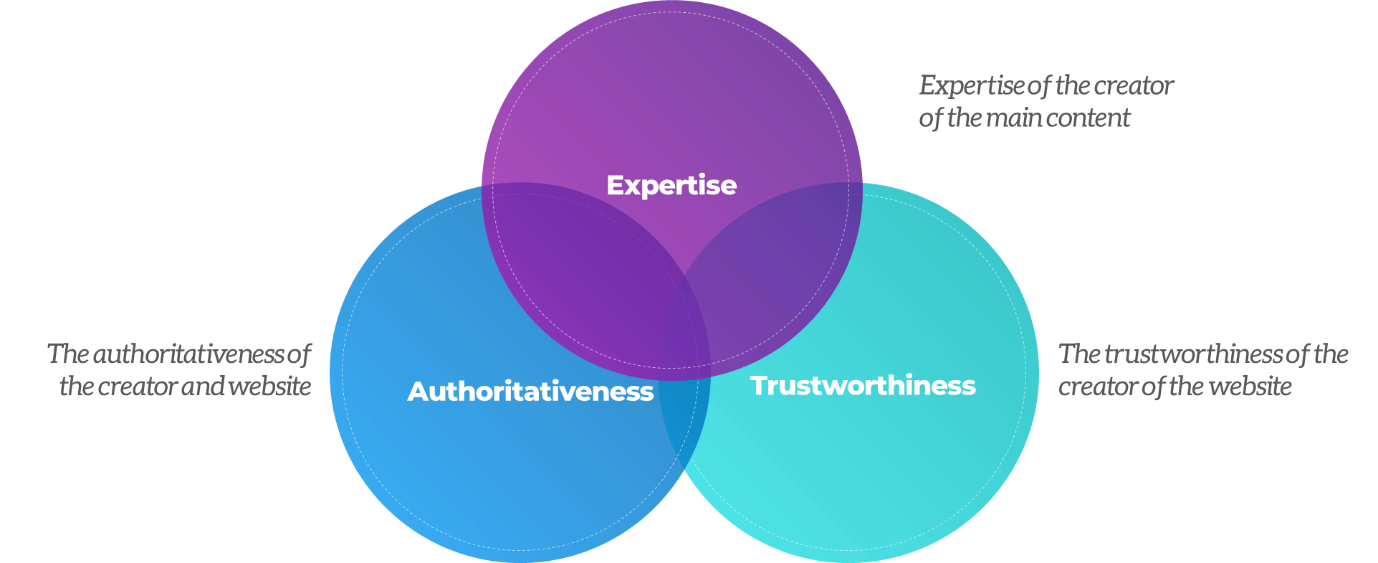
Demonstrate expertise, authoritativeness, and trustworthiness (E-A-T) with high-quality, reliable content, expert author profiles, and external references. Collaborate with industry influencers to create valuable content and earn high-quality backlinks.
Building genuine E-A-T signals helps establish trust and credibility with LLMs, contributing to improved search visibility and long-term success.
5. Implement Structured Data Markup
Use structured data markup (e.g., Schema.org) to provide explicit information about your products, reviews, ratings, and other relevant entities to LLMs. Structured data markup helps LLMs better understand the context and relationships between entities on a webpage, leading to improved visibility and potentially higher rankings.
Learn about the 6 best SEO practices for digital marketing
6. Optimize Page Structure and Headings
Use clear, descriptive, and hierarchical headings (H1, H2, H3, etc.) to organize your content. Ensure that your main product title is wrapped in an H1 tag. This makes it easier for LLMs to understand the structure and relevance of the information on your page.
7. Optimize for Featured Snippets and Rich Results
Structure your content to appear in featured snippets and rich results on search engine results pages (SERPs). Use clear headings, bullet points, and numbered lists, and implement relevant structured data markup. Featured snippets and rich results can significantly boost visibility and drive traffic.
8. Leverage User-Generated Content (UGC)
Encourage customers to leave reviews, ratings, and feedback on your product pages. Implement structured data markup (e.g., schema.org/Review) to make this content more easily understandable and indexable by LLMs.
User-generated content provides valuable signals to LLMs about a product’s quality and popularity, influencing search rankings and user trust.
9. Implement a Strong Internal Linking Strategy
Develop a robust internal linking strategy between different pages and products on your website. Use descriptive anchor text and link to relevant, high-quality content.
Internal linking helps LLMs understand the relationship and context between different pieces of content, improving the overall user experience and aiding in indexing.
10. Prioritize Page Speed and Mobile-Friendliness
Optimize your web pages for fast loading times and ensure they are mobile-friendly. Address any performance issues that may impact page rendering for LLMs. Page speed and mobile-friendliness are crucial factors for both user experience and search engine rankings, influencing how LLMs perceive and rank your content.
Explore this: search engine vs synthetic engine
By following these best practices, you can effectively leverage LLMs to improve your SEO efforts, enhance search visibility, and provide a better user experience.
Future of LLM-Powered SEO
Thus, the future of SEO is linked with advancements in LLMs, revolutionizing the way search engines interpret, rank, and present content. As LLMs evolve, they will enable more precise customization and personalization of content, ensuring it aligns closely with user intent and search context.
This shift will be pivotal in maintaining a competitive edge in search rankings, driving SEO professionals to focus on in-depth, high-quality content that resonates with audiences.
Moreover, the growing prevalence of voice search will lead LLMs to play a crucial role in optimizing content for natural language queries and conversational keywords. This expansion will highlight the importance of adapting to user intent and behavior, emphasizing the E-A-T (Expertise, Authoritativeness, Trustworthiness) principles.
Businesses that produce high-quality, valuable content aligned with these principles will be better positioned to succeed in the LLM-driven landscape. Embracing these advancements ensures your business excels in the world of search engine optimization, creates more impactful, user-centric content that drives organic traffic, and improves search rankings.


